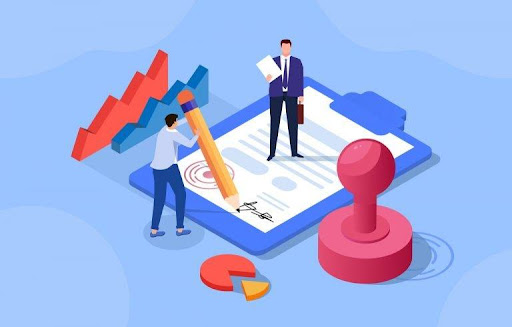A consumer loan is money that is offered by banks and financial institutions to customers to finance major projects or take care of emergencies. The condition is that the customer has to pay within a specified period and with interest.
Offering and receiving loans is something that can be traced back through centuries. In different historical myths and traditions, there were always systems through which peasants could borrow money from their lords. As at that period, the peasants/serfs did not have any say in the contract agreement. But things are quite different these days.
Consumer loan agreements these days are reached with input from both the lender and the borrower. Best of all, there are other convenient ways of getting money to take care of emergencies. Some of these ways include loan on the day (på dagen) and loans on the minute.
Types of Consumer Loans
The phrase consumer loan is an umbrella term for several credit facilities. Its types include personal, medical, education, housing, and car loans. These loans all come with terms, conditions, and rates specifically tailored for them and the borrowers in question. Let us go into full detail about these different types of loans: –
Car Loan

This is a credit provision given to consumers to enable them to buy cars or any form of automobile. This kind of credit advance is secured and most often, the car is collateral for the loan. In the event that the consumer defaults, the car will be repossessed and used to recover the debt.
The repayment duration can be up to 5 years depending on the lender while the interest rates also depend on a few variables.
These variables include whether the car is new or old, the credit history /score of the borrower, whether it is a fresh buy or a trade, and a few other factors.
Housing Loans
As the name rightly implies, this credit facility is extended for the sole purpose of purchasing a home. The two key prerequisites are an excellent credit score and the capability to finance a down payment.
This is also a secured loan as the borrower has to put down an asset of equal value to the amount borrowed. In this case, the security or collateral is usually the house itself. That is why you see that in cases where a borrower defaults on repayment, the house is usually taken over by the lender. This process is known as the repossession of a home or property.
The repayment duration for housing loans or mortgages as they are usually called is between 15 and 30 years. The interest rates also depend on a variety of factors such as the repayment duration, the credit score of the borrower, and how much down payment they can make.
Education Loans
This credit facility is designed for students mostly at the graduate and undergraduate levels. This advance helps students to fund their schooling by covering living expenses, tuition, and books.
You can either get this loan from the federal government or private lenders. The repayment duration starts to count from when the student graduates and starts working.
Personal Loans

These are credit facilities given to individuals to help them finance projects such as home improvement, weddings, funerals, vacations, and the like. One can also take out this loan for whatever personal reason that one wants.
Just like in the previous types of loans, the credit score of the borrower amongst other things informs the interest rate that they will get.
Applying for Consumer Loans on the Day
In this segment, there are several factors to consider before you set out to apply for a loan. You can either get an agent to help you navigate this terrain or you can do it by yourself. So below are some factors to consider even before you start the application process and what to expect in the agreement document if your loan is approved.
Factors to Consider Before You Begin Application
The success of every venture in life lies in the preparation that happens before the venture takes off. The same also goes when applying for any kind of loan. There are some factors you need to consider to help you make the right choice and stay on course. Some of these factors include the following: –
Amount Needed
You need to determine how much you need for the project or whatever reason for which you need the money. When working out the total sum that you need, you should bear in mind that the loan will come with some fees and additional costs.
Find out from you would be lender what these fees and additional costs are and when they will be paid or whether it will be deducted from the loan amount before disbursement. This will help you know how much money you will have when the money is disbursed to you.
Repayment Plan
Before you even begin to apply for a credit facility, ensure that you have the wherewithal to pay back. Apart from that, you must also be sure that you have the will and discipline to have a solid repayment plan and stick with it.
It is based on this point that we advise consumers not to borrow above their income or above the exact amount that they need. We have stated often that some lenders do not mind giving consumers amounts that exceed their annual income by far. It is now left for the consumer to know not to go beyond what they are able to repay.
Interest Rate
It is important to note the interest rate that the loan comes with. This amongst other things informs the total cost of the loan. It is remiss of any borrower to think that what they will repay is the exact sum that they borrowed.
Whenever you think of loans, bear in mind that the bank or financial institution is in business to make money. They are not charity organizations that just give out money. So, factor in all the fees and interest so that you can prepare yourself for repayment.
Duration of the Loan
The duration of repayment of a loan determines the monthly payments. Loans with shorter repayment duration come with higher monthly repayments but the longer the duration, the lower the monthly repayments. Bear in mind, however, that in the long run, the total cost will be higher with a longer repayment duration.
You can find other factors to consider here: https://www.cnbc.com/.
What to Expect in a Loan Agreement
After you have considered all the factors that will affect your application and repayment, you can now go ahead and apply if you feel it will be in your favor. If your loan is approved, these are the things that you can expect on your agreement document: –
- The principal (that is the original amount approved) and the interest rate.
- The repayment date and the monthly repayment are what you have to make.
- Origination fees and cancellation fees (if any).
- Repayment penalty for early repayment.
- Right of withdrawal from the loan contract.
Conclusion
This credit advance system that we have discussed in this article is a financial product that is extended to consumers. The process of application and approval takes place in a day. Prior to the rollout of this kind of consumer loan, processing applications for credit facilities took a long time due to the fact that it was manually processed. But now the automation of the process has made it fast and seamless.
We have shared some basic information about this kind of loan, and we believe that it will come in handy as you navigate the world of consumer loans.

Welcome to our blog! My name is Yuvraj Kore, and I am a blogger who has been exploring the world of blogging since 2017. It all started back in 2014 when I attended a digital marketing program at college and learned about the intriguing world of blogging.
